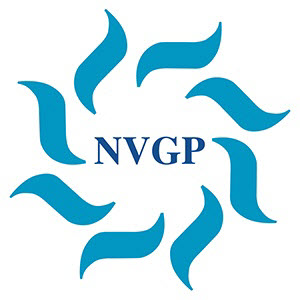A Meta-Analysis of Group CognitiveBehavioral Therapy as an Antidepressive Treatment
Tom J. Johnsen and Jens C. Thimm (2018). A Meta-Analysis of Group Cognitive–Behavioral Therapy as an Antidepressive Treatment: Are We Getting Better? Canadian Psychology/ Psychologie canadienne, 59 (1), 15–30 http://dx.doi.org/10.1037/cap0000132
Verslaggever Willem de Haas
Abstract
This meta-analysis examines temporal changes (time trends) in the effects of group cognitive– behavioral therapy (GCBT) as a treatment for unipolar depression. In this exploratory study, 37 studies (comprising 1,016 patients) conducted between 1980 and 2015 were included, and their effect sizes (ESs) were quantified as Hedge’s g based on the Beck Depression Inventory (BDI) and the Hamilton Rating Scale for Depression (HRSD). In the main analyses, within-group (prepost) comparisons (k _ 35 for the BDI, and k _ 14 for the HRSD) and controlled (between group) comparisons (k _ 16 for the BDI) were conducted. The average within-group ES was 1.33 (95% confidence interval [CI] _ 1.16 –1.19) for the BDI and 1.56 for the HRSD (95% CI _ 1.20 –1.90). The publication year of each study was examined as a linear metaregression predictor of ES. The results showed a significant increase in effect sizes for GCBT over time, with the BDI as outcome measure. However, this was not found for the HRSD as outcome measure. Subgroup analyses were performed on selected moderator variables to determine whether there was any covariation with effect sizes. These analyses revealed that in trials conducted without following a set manual, effect sizes increased with time—an association not found for trials using a manual. Potential causes and implications are discussed.
Keywords: group cognitive–behavioral therapy, effectiveness, depressive disorders, meta-analysis, treatment manual.
Wat betekent dit voor de groepstherapie?
Deze meta-analyse borduurt verder op het gegeven dat Cognitieve individuele behandeling en Cognitieve Groepsbehandeling beiden even effectief zijn bij behandeling van enkelvoudige depressie. De onderzoeksvraag is of het effect voor Cognitieve groepsbehandeling in de tijd effectiever is geworden. En de conclusie is ja, wanneer we de Beck Depression Inventory als maat nemen. Met de Hamelton Rating Scale als criterium zien we geen longitudinale verbetering. Interessant daarbij is dat eerder onderzoek laat zien dat dat de effect-size voor Individuele Cognitieve behandeling van depressie in de loop der tijd enigszins afneemt. Ook interessant hierbij is de ontdekking dat groepstherapieën met een strakke werkwijze (manual) minder effectief worden vergeleken met wat meer aangepaste werkwijzes.
| Relevantie voor richtlijnen | O O O O O |
| Relevantie voor onderzoek | O O O O O |
| Relevantie voor groepsbehandeling | O O O O O |
| Relevantie voor teamcoaching | O O O O O |
| Relevantie voor groepsdynamicaopleiding | O O O O O |
| Relevantie voor groepstherapieopleiding | O O O O O |
| Relevantie voor KP opleiding of Psychiatrieopleiding | O O O O O |
